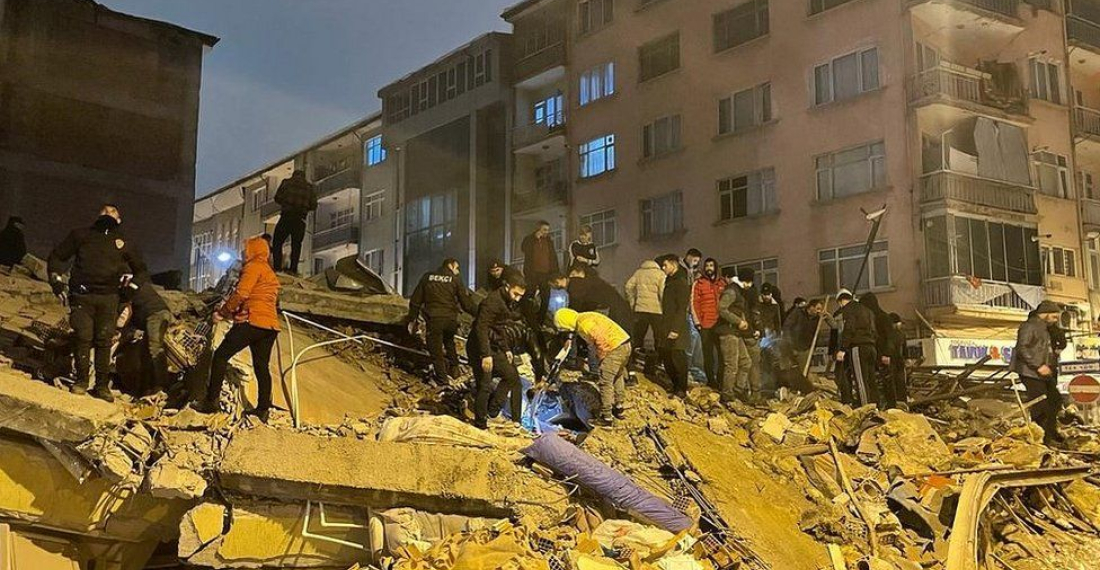A magnitude 7.8 earthquake struck southern Turkey and Syria, killing and injuring thousands of people. The earthquake, which struck at 04.17 local time on Monday (6 February), was followed 11 minutes later by a magnitude 6.7 aftershock.
As of 08.00 CET on Thursday (9 February), the number of confirmed dead across both countries has reached over 15,000, according to the BBC.
The epicentre was approximately 20km west of the city of Gaziantep, and was felt as far away as Lebanon, Israel and Cyprus. Italy also released a tsunami warning soon after the quake struck, but it has since been lifted.
In apocalyptic scenes resembling war-torn Ukraine, footage on social media has shown collapsed buildings and people stuck under rubble calling for help. Rows of tower blocks in major cities across Turkey have been levelled, and in rebel-held northern Syria, the situation is likely to be significantly worsened due to limited access to healthcare and poor living conditions.
In the immediate hours following the earthquake, the Syrian American Medical Society (SAMS) said its hospitals in Syria "are overwhelmed with patients filling the hallways." In a statement, the relief organisation said: "There is an immediate need for trauma supplies and a comprehensive emergency response [...] Many hospitals are full, but some critical facilities, including Al Dana Hospital had to evacuate patients after sustaining severe damage from the earthquake. Likewise, the Idleb Maternity Hospital was forced to transfer all newborns to a nearby hospital."
The Gaziantep Castle in Turkey, which was over 2000 years old, also collapsed.
Turkey’s Interior Minister Süleyman Soylu said 10 cities in Turkey have been affected by the quake including: Kahramanmaraş, Hatay, Gaziantep, Osmaniye, Adıyaman, Malatya, Şanlıurfa, Adana, Diyarbakır, Kilis.
Following the earthquake, Turkish President Recep Tayyip Erdogan tweeted his "best wishes" to all affected citizens, saying "We hope that we will get through this disaster together as soon as possible and with the least damage."
Dozens of countries from around the world have pledged aid and have sent search and rescue to teams to help with the recovery effort.






